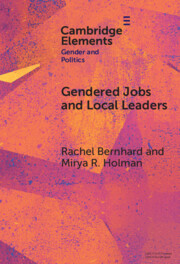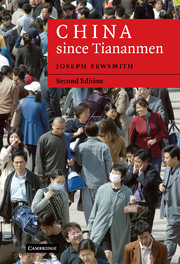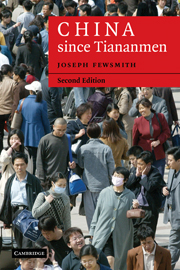Gendered Jobs and Local Leaders
Men from business are overrepresented in local politics in the United States. The authors propose a theory of gendered occupations and ambition: the jobs people hold-and the gender composition of those jobs-shape political ambition and candidate success. They test their theory using data on gender and jobs, candidacy and electoral outcomes from thousands of elections in California, and experimental data on voter attitudes. They find that occupational gendered segregation is a powerful source of women's underrepresentation in politics. Women from feminine careers run for office far less than men. Offices also shape ambition, candidates with feminine occupations run for school board, not mayor or sheriff. In turn, people see the offices that women run for as feminine and less prestigious. This Element provides a rich picture of the pipeline to office and the ways it favours men. This title is also available as Open Access on Cambridge Core.
Product details
March 2025Hardback
9781009482899
100 pages
229 × 152 mm
Not yet published - available from March 2025
Table of Contents
- 1. A Theory of Gendered Role Congruity and Local Political Leaders
- 2. Measuring Gender and Occupation among Local Leaders
- 3. Gendered Occupational Segregation Shapes Who Runs and Wins Local Office
- 4. Gender-Segregated Jobs Influence Perceived Occupational Femininity and Win Rates
- 5. It's Not What You Know, It's Who You Know: Why Business Leaders and Teachers Dominate Local Politics
- 6. Voters See Some Local Offices as Feminine and Less Prestigious
- 7. Work is Gendered, Politics is Gendered, and Ambition is Gendered.






